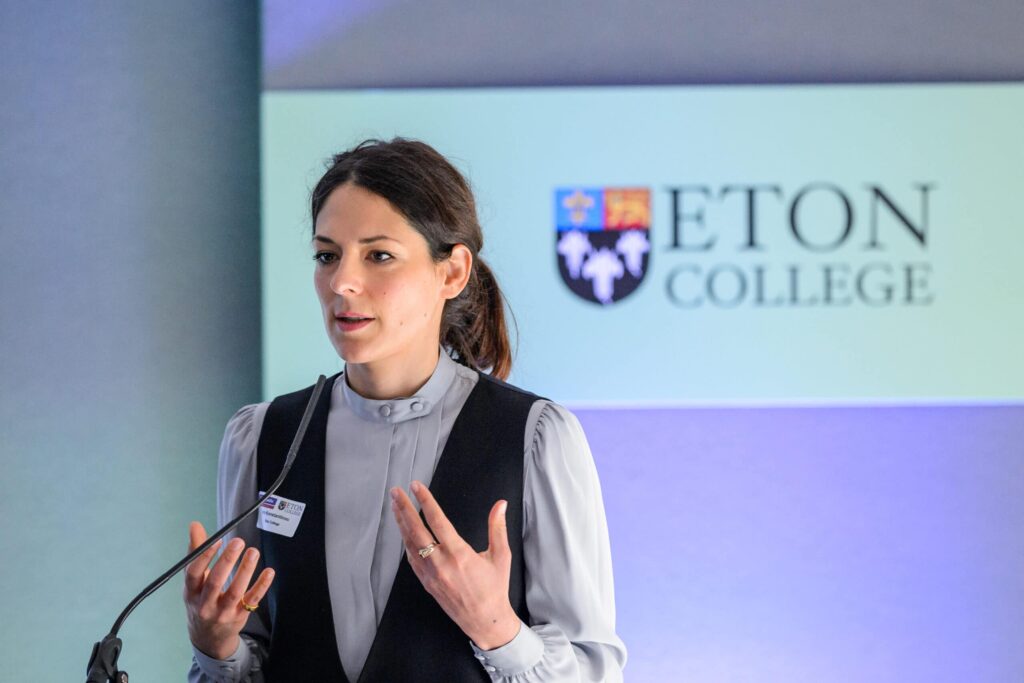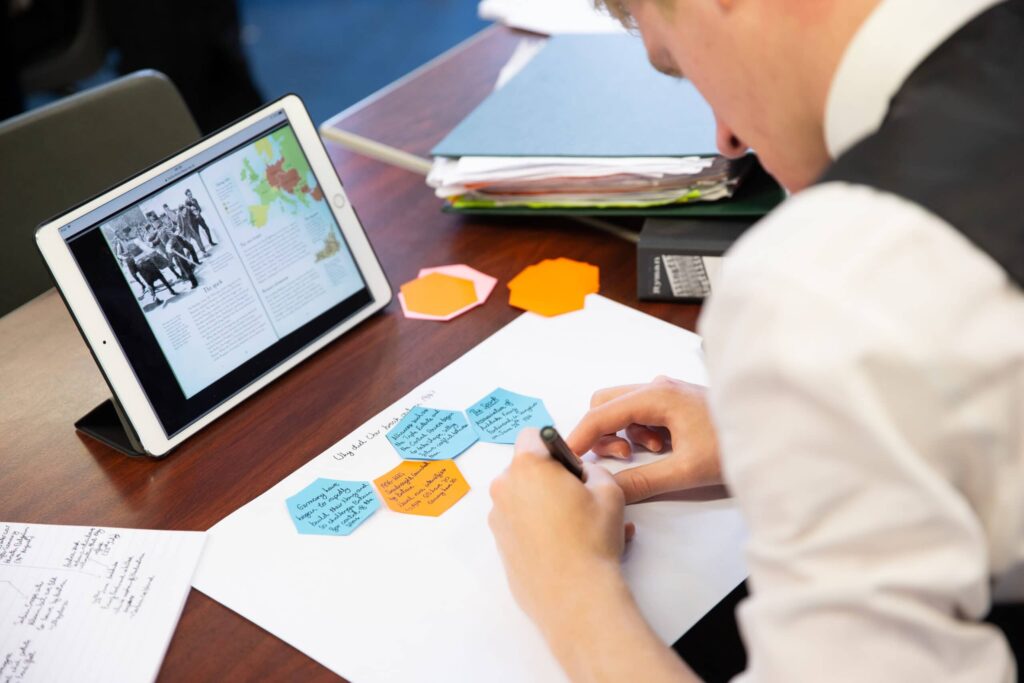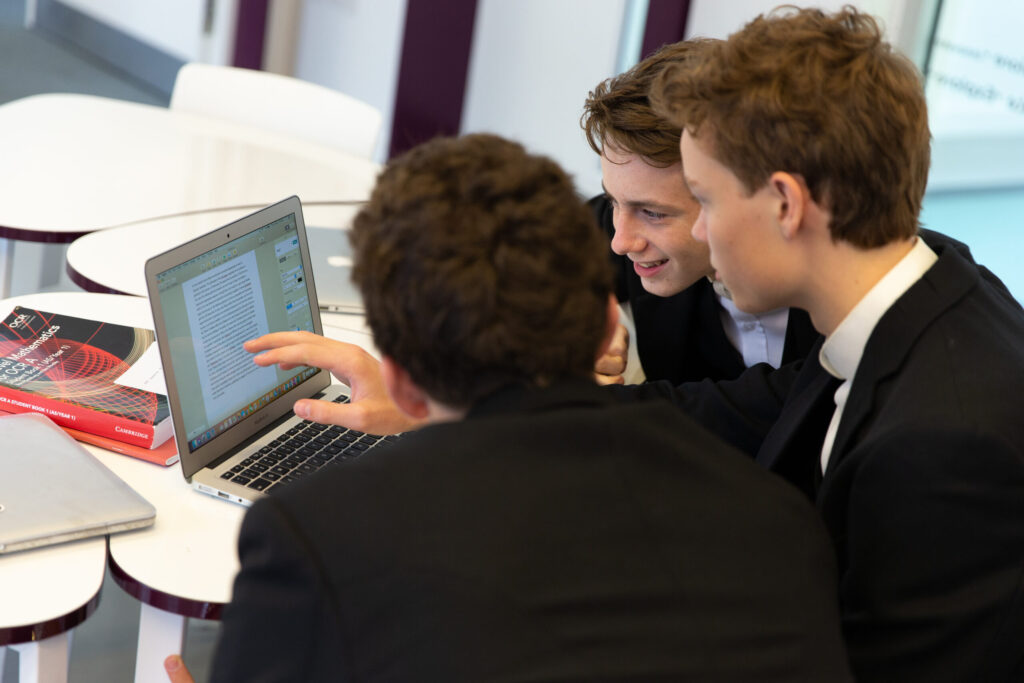(Part 1)
In our attempts to be a research-informed school, our approach is bottom up, led by teachers rather than responding to positions of authority, whether that is management teams, examining bodies, or inspection reports. To make this argument we draw from various individuals and their respective experiences: the Researcher-in-Residence and a History teacher at Eton College, the Researcher-in-Residence at Christ the King, a state sixth-form college in London, and a professor of education who has been researching the interactions and impact of evidence and research on teachers.
This article suggests that being research-engaged does not only entail conducting action research but also the need to be a reflective practitioner with the ability to understand and be able to act on pupil difficulties, which can be one of the most effective pedagogical attributes that empirical research on effective teaching has identified (Hattie, 2009). Making classroom based in-situ judgments is different from making judgments based on a conceptual understanding of education, and being able to identify problems and search for answers through interrogating and evaluating research can be an invaluable asset for teachers.
Being a research-engaged school also encompasses facilitating the processes for teachers to be self-improving practitioners: to be informed about research and scholarship in teaching, to engage in and with research and to be consumers of research, and to be equipped to conduct their own research (BERA-RSA, 2014). This drive to be self-reflective and base one’s judgements on evidence is one which ideally should be embraced by new and experienced teachers alike. As Griffiths argues: ‘experience is not enough on its own. To become excellent — that is, more than proficient — requires a career-long commitment to self-cultivation as teachers. Part of the reason that the commitment needs to be career-long is that teaching contexts are in a continual state of change, and teachers need to adapt through a process of self-cultivation.’ (Griffiths, 2012:117).
For this to happen teachers need to be equipped with the motivation, capacity, confidence and opportunity to do so. If these criteria are met, there is a powerful other way in which the schools can achieve high academic results and potentially reduce the workload of the teachers. However, there are still some structural barriers in place for research to become the norm in schools.
For example, there still exists the underdeveloped model of the teacher-as-researcher (Hammersley, 1993), and the capacity for this position is yet to be robustly applied in schools. There is also the ‘there is no time’ narrative, often heard in school corridors and staff rooms, which will need to shift. Hargreaves (1996) advocated small scale research relevant to the national agenda but not commissioned or dictated by it, using the analogy of the medical profession where care for patients involves the need for evidence about diagnosis, prognosis, therapy and other health care issues. Perhaps then part of the learning teachers are trying to produce is based on problems facing the pupils rather than being dictated by the syllabus. This model can also allow for deliberations of a community of researchers and practitioners who share their respective expertise.
There has been a shift in the cultural practices which foster such collaborations and communities of practice. To name a few examples, there are the Research Schools Network, the Institute for Research in Schools, and the Institute for Effective Education. Research is becoming central to what schools strive to do. Increasingly schools appoint Research Leads in senior roles, they train teachers to become researchers, and they build centres to foster research initiatives. Another example of the need for such collaborations which foster research is an initiative which our Centre is an active member of: the Research in Schools Learning Community. Bearing in mind the various initiatives and potential around being a research-engaged school, below are some reflections on how this can be realised in practice.




